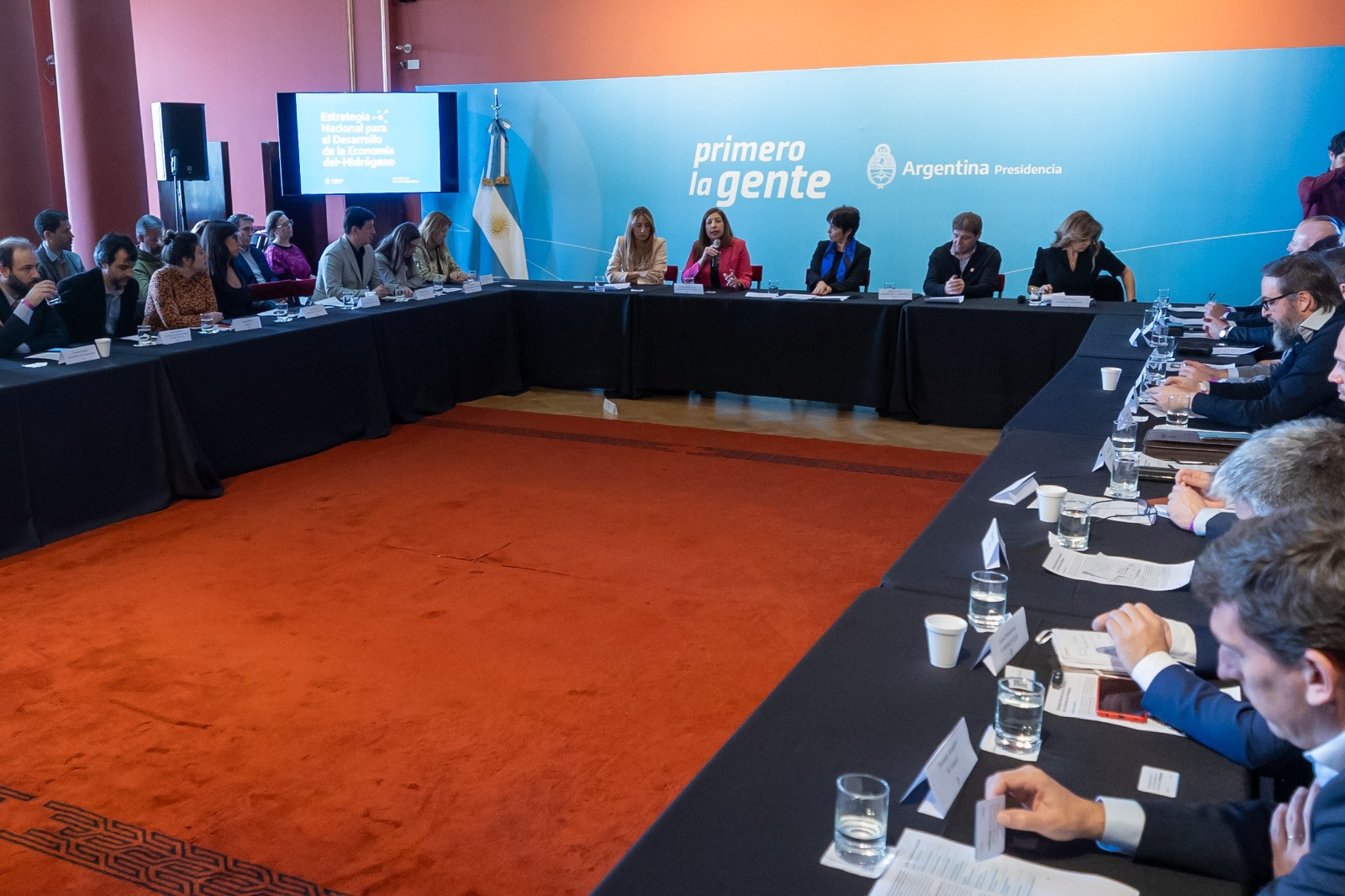Green Hydrogen
Rio Negro attended the National Hydrogen Strategy the presentation
Governor Arabela Carreras attended the presentation of the roadmap the nation will seek to encourage the growth of the hydrogen economy. The document, which was drawn up by the National Secretariat for Strategic Affairs together with various sectors, was presented on Tuesday at the Casa Rosada.
Fecha: 13 de septiembre de 2023
During the event, the Governor highlighted the potential of the province of Río Negro in this area and the scenario that led it to become the first Argentine province in 2020 to have a strategic plan in this regard.
The National Hydrogen Strategy (ENH, in Spanish) was the result of the work carried out during the first half of this year within the framework of the Hydrogen Intersectoral Roundtable. A space for articulation between the public, private and academic sectors was suggested at various meetings. Argentina now joins the other 21 nations that have a plan for the deployment of low-emission hydrogen after assembling the visions of the various actors who took part in these instances.
The governor of Rio Negro welcomed the initiative at the ceremony, which was held in the Pueblos Originarios Hall of the Casa Rosada, and emphasized the fact that it has been possible to coordinate "so many points of view on an innovative subject".
"Four years ago, in Río Negro, we made it visible as one of the axes to be developed. To identify our true prospects for hydrogen production, we first carried out baseline investigations with the Fraunhofer Institute. We focus on green because of the province's characteristics, which we share with the rest of Patagonia: particularly excellent winds, access to seawater, ports, and large territorial boundaries. A combination of facts that allowed us to position ourselves as a strategic region for the deployment of green hydrogen," Carreras underlined.
Once we had those baseline studies," she continued, "we defined our roadmap. We were the first province in the country, in 2020, to have a strategic plan for green hydrogen".
The governor explained that the province also has the capacity to develop pink and blue hydrogen, "but we are mainly focused on green hydrogen, understanding that a strategic market for this type of hydrogen is being generated in the world".
"We had the opportunity to receive a private initiative from an Australian company and that gave us significant support. What we once thought to be a possibility on the horizon has already become a reality," she said.

She also emphasised the environmental impact studies that have been carried out on the coast of Río Negro and reviewed the actions that have been taken to promote citizen participation in the issue. In this context, she highlighted that achieving "social consensus is crucial for every project". She then explained that they had organised several activities to help build such a consensus, including awareness-raising talks with technicians, the Hydrogen Thursdays series, which resulted in several publications, and the Diploma in Green Hydrogen offered in collaboration with the National University of Río Negro, who is about to graduate its second cohort of students. Other training activities were also carried out.
"A lot of progress has been made in all of this. We are currently working on actual projects and are very near to announcing the construction of the 300 MW initial phase of a wind farm connected to the hydrogen project. Environmental impact studies have also been done for the location of a large-scale hydrogen plant, which we hope can be achieved," Carreras said.
On the other hand, the provincial governor stressed the importance of Argentina expanding its infrastructure for the transmission of electricity and making progress with the regulatory framework in order to "encourage these investments, which are very large-scale". "We believe that the launch of the National Hydrogen Strategy will help a lot," she said.

"This requires a medium and long-term perspective. This is our great challenge and the great achievement of this group of people coordinated by the Secretary for Strategic Affairs, Mercedes Marcó del Pont. The country needs us to think a little more clearly and not just look at the current reality so that we understand the enormous opportunities we have," she said.
Closing her speech, Carreras thanked especially the support of the head of the national energy agency, Flavia Royón, "because together we managed to get the bill through Congress". "We wish them success and want to continue to participate in this national strategy," she concluded.


